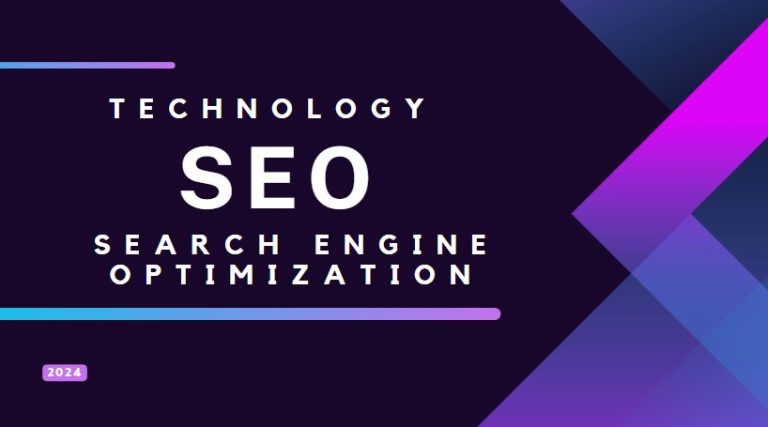Introduction
In the digital age, where the internet serves as the backbone of business operations, Search Engine Optimization (SEO) has evolved from a niche marketing strategy Search Engine Optimization (SEO) to a fundamental component of any company’s online presence. SEO isn’t merely about boosting website traffic; it’s about positioning your brand in front of potential customers at the precise moment they are searching for your products or services. For companies looking to leverage this powerful tool, understanding the intricacies of SEO and its impact on business growth is crucial.
The Essence of SEO
While the specifics of SEO can be technical, the overarching principles are straightforward: improving visibility, relevance, and user experience.
Key Components of SEO
- Keyword Research: The foundation of SEO lies in identifying the terms and phrases potential customers use when searching for products or services. Effective keyword research involves understanding user intent, competition, and search volume.
- On-Page SEO: This encompasses optimizing individual pages on your website to rank higher. It includes factors like meta tags, headings, URL structures, and content quality. On-page SEO ensures that each page is well-optimized for its target keywords.
- Off-Page SEO: Unlike on-page SEO, off-page SEO focuses on external factors such as backlinks. Building high-quality links from reputable sites can significantly enhance your site’s authority and search engine ranking.
The Business Case for SEO
Investing in SEO is more than just a marketing expense; it’s a strategic investment with the potential to drive significant business outcomes.
1. Increased Visibility and Brand Awareness
A well-optimized website ranks higher in search results, which means more visibility for your brand. When your site appears on the first page of search results, it gains credibility and trust in the eyes of users.
2. Cost-Effective Marketing
Compared to paid advertising, SEO offers a more cost-effective approach to attracting visitors. While there are upfront costs associated with SEO (such as hiring specialists or investing in tools), the long-term benefits often outweigh these expenses. Organic traffic generated through SEO doesn’t incur ongoing costs like paid ads do.
3. Competitive Advantage
In today’s competitive market, having a strong SEO strategy can set your company apart from competitors. A higher search engine ranking not only drives traffic but also positions your business as a leader in your industry. Companies that invest in SEO often find themselves outpacing competitors who rely solely on traditional marketing methods.
4. Long-Term Results
One of the most compelling aspects of SEO is its potential for long-term results. While paid ads provide immediate traffic, SEO efforts can continue to drive traffic and generate leads long after the initial investment. With ongoing optimization and content creation, your site can maintain high rankings and benefit from sustained organic traffic.
Integrating SEO into Business Strategy
Successfully integrating SEO into your business strategy involves a holistic approach. Here’s how companies can leverage SEO to drive growth:
A robust SEO plan includes keyword research, content creation, on-page and off-page optimization, and performance tracking. Establish clear objectives and key performance indicators (KPIs) to measure the effectiveness of your SEO efforts.
1. Investing in Quality Content
Content is a pivotal element of SEO. Developing high-quality, relevant content not only improves your search engine rankings but also engages and informs your audience. Invest in content creation that addresses your audience’s needs and interests, and utilize various formats such as blogs, infographics, videos, and case studies.
2. Building a Strong Online Presence
In addition to SEO, companies should focus on building a strong online presence through social media, email marketing, and online communities. A comprehensive digital marketing strategy enhances your SEO efforts and drives traffic to your website from various channels.
Challenges and Solutions in SEO
While SEO offers numerous benefits, companies may encounter Search Engine Optimization (SEO) challenges in their optimization efforts
Algorithm Changes
Search engine algorithms are constantly evolving, which can impact your rankings.Follow industry blogs, attend webinars, and consult with SEO experts to keep your tactics current.
Content Saturation
With the increasing amount of content available online, standing out can be challenging. Focus on creating original, valuable content that addresses Search Engine Optimization (SEO) specific user needs and questions. Utilize various content formats and optimize for voice search and featured snippets to enhance visibility.
Future Trends in SEO
As technology continues to advance, SEO will evolve to meet new challenges and opportunities.
Artificial Intelligence (AI)
AI is becoming increasingly important in SEO, influencing search algorithms and user behavior. AI-driven tools can provide insights into user intent, content optimization, and predictive analytics. Embrace AI technologies to enhance your SEO strategy and stay ahead of the curve.
1.User Experience (UX)
Search engines are placing greater emphasis on user experience as a ranking factor. Ensure your website offers a seamless and enjoyable user experience, with fast loading times, intuitive navigation, and mobile compatibility. Prioritize UX to improve engagement and retention.
2. Video SEO
Video content is becoming increasingly popular, and optimizing videos for search engines can drive significant traffic. Use descriptive titles, tags, and thumbnails, and include relevant keywords in your video descriptions. Leverage platforms like YouTube and social media to maximize video reach.
Also Read : 03447987007
Conclusion
SEO is a powerful tool that can transform a company’s online presence, driving visibility, traffic, and business growth. By understanding the key components of SEO and integrating it into your business strategy, you can unlock new opportunities and achieve long-term success. While the landscape of SEO is continually evolving, staying informed and adapting to changes will ensure that your company remains competitive and effective in the digital realm. Embrace SEO not just as a marketing tactic, but as a vital component of your overall business strategy, and watch as it propels your company to new heights.


